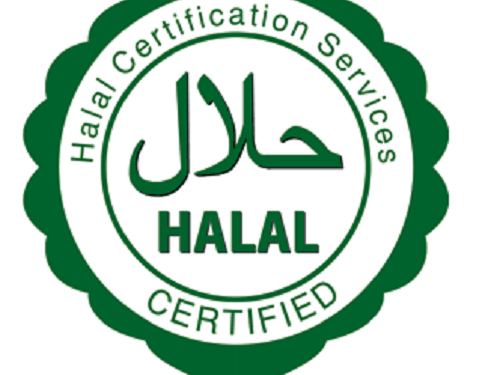‘Halal’ is an Arabic term which translates to permissible and can be applied for any food item or practice that is considered permissible in Islam. Embarking on its journey from non vegetarian items in India, the Halal market over years has expanded and enclosed a broader arena in the Indian Market incorporating vegetarian food items like wheat, cereals, flour as well as non-food products like iron bars and cement. The development might not look concerning until one dives deep to know how the Halal economy really works.
At the latest, on the 20th of January, Tushar Mehta who is the Solicitor General of India raised concerns in the Supreme Court over the halal certification of non-meat products such as iron bars, cement, wheat flour, and gram flour. He questioned why non-believers should bear higher costs for halal-certified items, emphasizing the broader implications of such certifications on pricing.
Speaking before a bench of Justices B.R. Gavai and Augustine George Masih, Mehta expressed his shock at the widespread requirement for halal certification.
“While no one objects to halal meat, it is surprising that even products like cement and iron bars require halal certification,” he said.
He argued that the certifying agencies collect significant revenue, potentially amounting to several lakh crore, through this process.
The case involves petitions challenging a November 18, 2023, notification by Uttar Pradesh’s Food Safety and Drug Administration. The notification bans the manufacture, storage, sale, and distribution of food products with halal certification in the state, except for exports. Petitioners argued that halal certification is a voluntary lifestyle choice and that no one is forced to buy such products.
Tushar Mehta countered by questioning why non-halal consumers should be made to pay a premium due to certification preferences. The Centre, in its affidavit, clarified that the notification is a state matter under the jurisdiction of Uttar Pradesh. It added that the Ministry of Commerce and Industry has no authority over such state-level regulations.
The affidavit also addressed allegations of forged halal certifications for financial gains, stating that an FIR had been filed in Lucknow against certain entities. It noted that the Agricultural and Processed Food Products Export Development Authority (APEDA), in collaboration with the Quality Council of India (QCI), had developed a national halal certification scheme for meat and related products.
The Supreme Court granted the petitioners four weeks to file rejoinders, with the next hearing scheduled for the week of March 24. Several entities, including Halal India Private Limited and Jamiat Ulama-I-Hind Halal Trust, are party to the ongoing case.


The Halal certification and thriving economy is concerning for the civilisation and the implications of halal certification in India must be analysed. Halal certification has expanded beyond meat to include pharmaceuticals, cosmetics, and even basic commodities like flour. The Uttar Pradesh Governmenmt led by Yogi Adityanath has placed a ban over the Halal food items but the big giants like Amazon and Flipkart are catering the needs of the Islamo-Leftists by selling the Halal certified food items. The growing scope of Halal Certification risks limiting job opportunities across industries to people of a particular religion. There are other problematic issues too, the ‘Halal’ brings with itself.
Restriction of Consumer Choice
To streamline operations, many businesses now exclusively provide halal products, eliminating the option for consumers who prefer non-halal meat. For those whose beliefs align with jhatka meat or other methods, the lack of transparency forces them to consume halal products unknowingly, restricting their religious and personal choices.
Concerns About Certifying Authorities
Organizations like Jamiat Ulema-e-Hind (JUH), prominent halal certifiers, have faced scrutiny for allegedly funding legal defenses for individuals accused in terror-related cases. Fees charged for halal certification contribute to such activities, indirectly involving consumers in financing contentious operations without their knowledge.
Concerns on employment
Halal certification mandates that meat products must be slaughtered by Muslims, leading to systemic discrimination in the meat industry. To cut costs, businesses consolidate operations under halal standards, employing only Muslim workers in large-scale abattoirs. This practice sidelines traditional Hindu butchers from employment opportunities in a billion-dollar sector.
The Islamo-Leftists has been long giving a backup support to the concerning economy. The secular fabric rarely does get affected by the Halal Certification provided to food items but Hindus choosing a ‘pure veg’ restaurant to have their means thrashes down the secularism of the country.
























